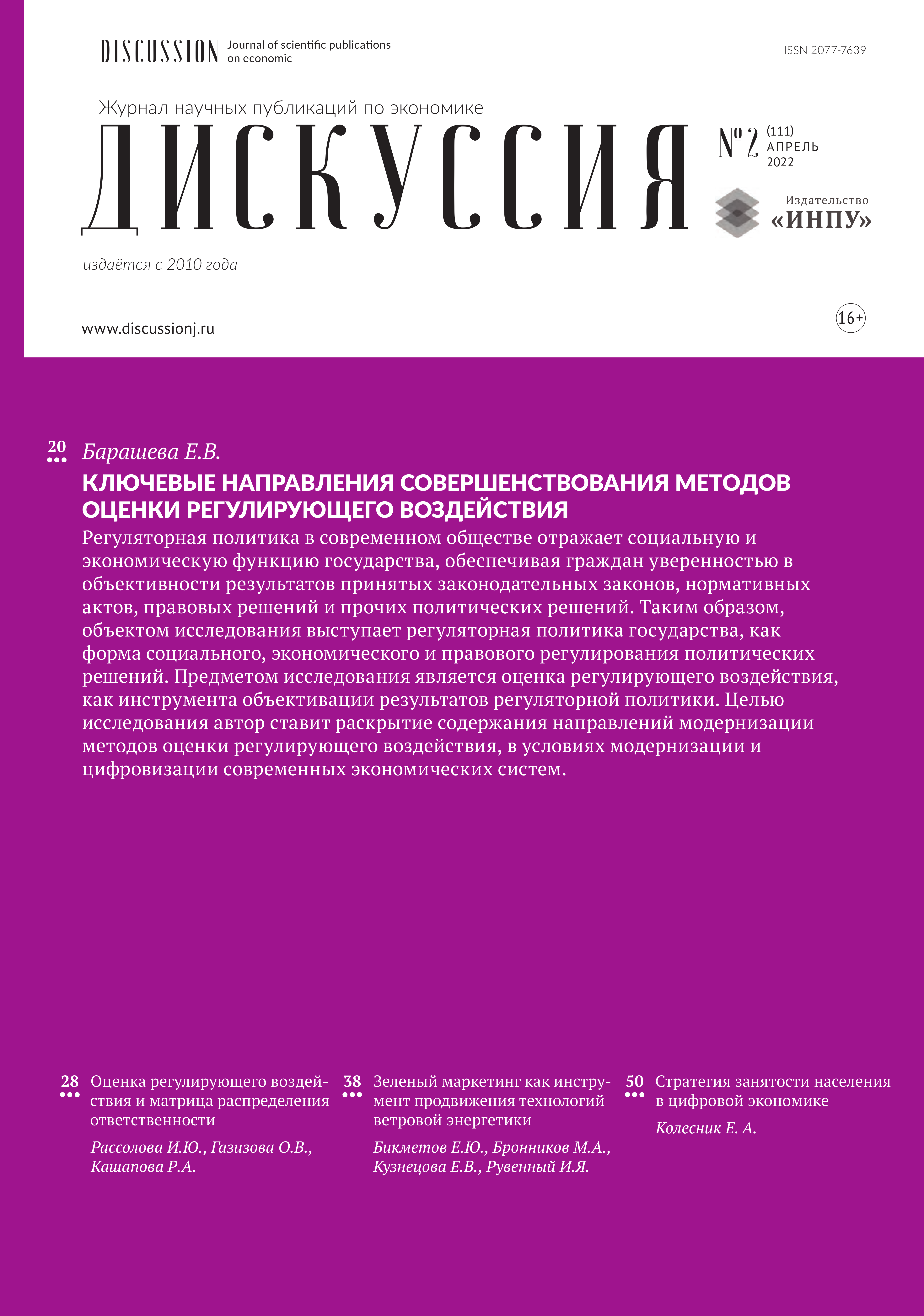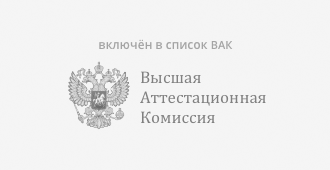Legalization of income in the informal economy of Russia: critical analysis and countermeasures
Keywords:
Shadow economy, legalization of informal income, countering money laundering, risk, real sector of the economyAbstract
The study examines the functioning of the shadow economy of Russia in terms of the legalization of income obtained by illegal means. The theoretical significance of the study lies in the fact that the scaling of shadow processes and the informal part of economic systems negatively affect the efficiency of the functioning of the national economy, which causes an objective need for critical analysis and the development of countermeasures. The object of the study is the national economy and national income. The subject of the study is the informal economy and part of the national income obtained illegally. The purpose of the study is to identify objects of economic and illegal activities in the national system of economic management and to develop measures to counteract the scaling of the legalization of illegally obtained income. Research objectives: 1. Theoretical analysis of the research results of domestic and foreign scientists; 2. Analysis and processing of statistically significant data; 3. Graphical analysis of data; 4. Development of measures to counter money laundering; 5. Formulation of conclusions. The research methodology is adopted as an economic and statistical approach, conditioned by heuristic methods of scientific cognition. Research results: 1. It was revealed that the main source of legalization of informal income according to the results of the study is digital currencies in terms of payment and exchange, individual entrepreneurs in terms of the legal form of the organization, construction in terms of the type of economic activity. 2. The risk groups of legalization of informal income are presented; 3. The typology of preventive measures for the legalization of informal income is presented.
Downloads
Metrics
References
Котов К. В. Легализация доходов как способ борьбы с теневой экономикой //Налоговая политика и практика. – 2010. – №. 6. – С. 26-33.
Буянский С. Г., Порываев Г. В. Противодействие легализации денежных средств как инструмент минимизации уровня теневой экономики //Экономика. Налоги. Право. – 2018. – Т. 11. – №. 5. – С. 48-55.- DOI: 10.26794/1999-849Х-2018-11-5-48-55.
Кондратьева Е. А. Процессы противодействия легализации (отмыванию) доходов, полученных преступным путём, и финансированию терроризма (ПОД/ФТ): категориальные подходы //Теневая экономика. – 2017. – Т. 1. – №. 1. – С. 31-46.- DOI: 10.18334/tek.1.1.37716.
Капитонова Н. В., Капитонова А. А. Тенденции развития теневой экономики современной России //Теневая экономика. – 2021. – Т. 5. – №. 1. – С. 9-18.- DOI: 10.18334/tek.5.1.111962.
Stiglitz J. E., Pieth M. Overcoming the shadow economy. – 2016. - С. 1-24.- DOI: 10.7916/d8-zhs2-7332.
Купрещенко Н. П. Теневая экономика. М.– Litres, 2022.-199 с.- ISBN 978-5-238-02466-0.
Барсукова С. Ю. Эссе о неформальной экономике, или 16 оттенков серого. – Litres, 2020.
Hendrickson, Joshua R., and William J. Luther. "Cash, crime, and cryptocurrencies." The Quarterly Review of Economics and Finance (2021). DOI: 10.1016/j.qref.2021.01.004.
Leukfeldt, E. Rutger, Anita Lavorgna, and Edward R. Kleemans. "Organised cybercrime or cybercrime that is organised? An assessment of the conceptualisation of financial cybercrime as organised crime." European Journal on Criminal Policy and Research 23.3 (2017): 287-300. DOI: 10.1007/s10610-016-9332-z.
Дворянкин О. А., Клочкова Е. Н. Криптовалюта-новый инструмент наркобизнеса //Наркоконтроль. – 2018. – №. 4. – С. 19-22.- DOI:10.18572/2072-4160-2018-4-19-22.
Ализаде, В. А. Судебная практика по делам о преступлениях в сфере незаконного оборота наркотиков, совершенных с использованием криптовалюты: от разных подходов к предложению единого понимания / В. А. Ализаде, А. Г. Волеводз // Библиотека криминалиста. Научный журнал. – 2018. – № 1(36). – С. 306-333. – EDN YRMKAI.
Немова, М. И. Использование криптовалюты при легализации (отмывании) денежных средств или иного имущества, приобретенных преступным путем: анализ судебной практики / М. И. Немова // Уголовное право. – 2019. – № 4. – С. 63-68. – EDN YYWDKB.
Лавроненко, Р. А. Легализация преступных доходов, совершаемая в кредитно-финансовой системе с использованием криптовалюты /Р. А. Лавроненко // Безопасность бизнеса. – 2018. – № 5. – С. 57-63. – EDN OXOHLF.
Долгиева М. М. Противодействие легализации преступных доходов при использовании криптовалюты //Вестник Томского государственного университета. – 2019. – №. 449. – С. 213-218. DOI: 10.17223/15617793/449/26.
Downloads
Published
How to Cite
Issue
Section
Categories
License
Copyright (c) 2022 А. С. Полийчук

This work is licensed under a Creative Commons Attribution-NonCommercial-NoDerivatives 4.0 International License.
Авторы, публикующие произведения в журнале «Дискуссия», соглашаются со следующими условиями:
- Авторы сохраняют за собой авторское право и предоставляют журналу право первой публикации произведения, одновременно лицензированной в соответствии с лицензией Creative Commons Attribution, позволяющей другим лицам пользоваться произведением с подтверждением авторства и первоначальной публикации в журнале «Дискуссия».
- Авторы вправе заключать с иными лицами лицензионные договоры на условиях простой (неисключительной) лицензии на использование опубликованного в журнале «Дискуссия» произведения (например, размещение его в базах данных университетов, публикация в книге), со ссылкой на его оригинальную публикацию в этом журнале.
- Автор гарантирует, что является правообладателем всех материалов, предоставляемых в редакцию, и что исключительные права на данные материалы не переданы или не предоставлены другим лицам.
- Авторам разрешено и рекомендуется размещать свое произведение в Интернете до и во время процесса подачи, поскольку это может привести к продуктивному обмену, а также к более раннему и более широкому цитированию опубликованных работ.
С момента загрузки произведения и сопроводительных материалов через раздел "Отправка материалов", автор полностью и безоговорочно принимает (акцептует) публичную оферту о заключении авторского соглашения об опубликовании произведения. В соотвтетствии с этим соглашением автор предоставляет издателю на безвозмездной основе неисключительную лицензию на использование созданного автором произведения.
С момента получения произведения и прилагаемых к нему материалов журнал "Дискуссия" вправе использовать полученные произведения без ограничений по своему усмотрению и в пределах всего срока действия исключительных прав, но с обязательным указанием имени автора (авторов) произведения, в том числе публиковать произведения (полностью или в сокращении) на территории всего мира, переводить на другие языки, направлять в репозитории научной информации, размещать в сети Интернет и использовать другими законными способами.









